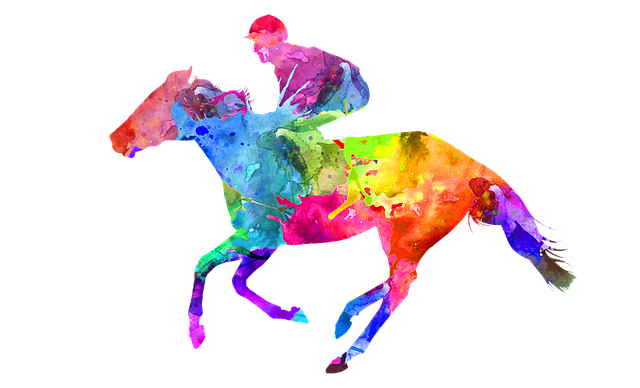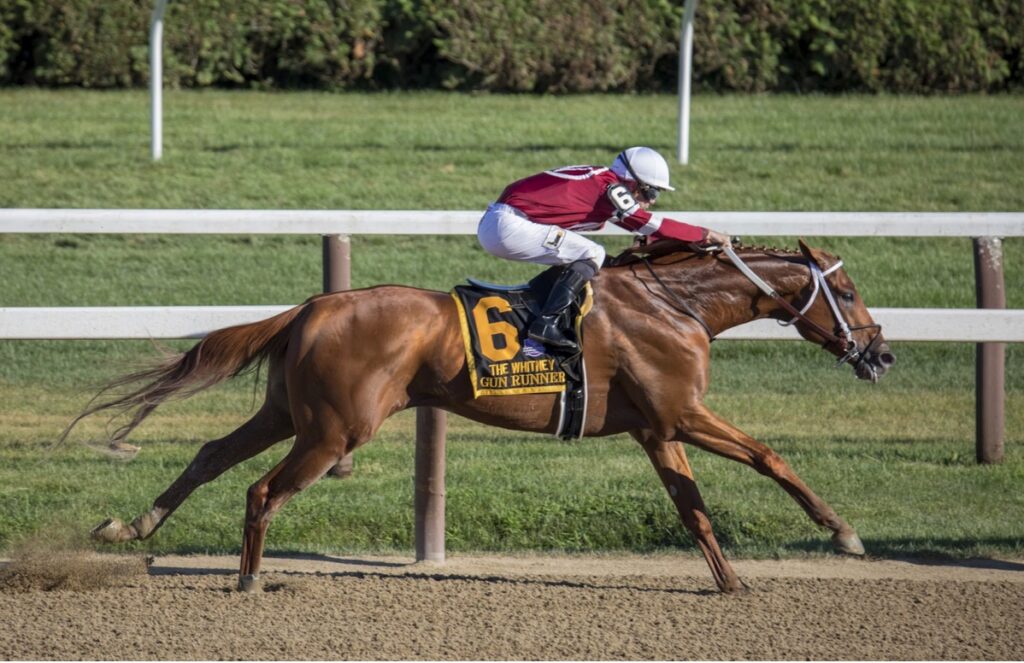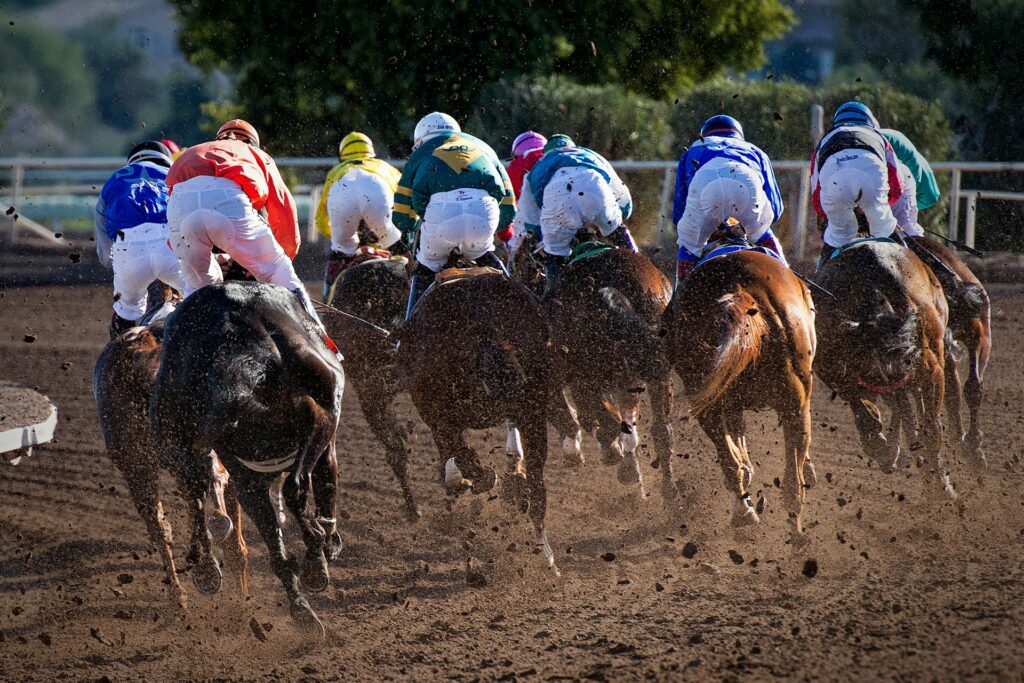 The Irish Grand National stands as a cornerstone of the racing calendar, not just in Ireland but across the world of National Hunt racing. First held in 1870, this intense steeplechase has become a defining test for horses and riders alike, played out over three miles and five furlongs at Fairyhouse Racecourse each Easter Monday.
The Irish Grand National stands as a cornerstone of the racing calendar, not just in Ireland but across the world of National Hunt racing. First held in 1870, this intense steeplechase has become a defining test for horses and riders alike, played out over three miles and five furlongs at Fairyhouse Racecourse each Easter Monday.
While the race is often remembered for the horses that etched their names into the history books, it is also the jockeys – those brave, tactical minds in the saddle – who have helped elevate the event to legendary status.
The Irish Grand National isn’t merely a race; it’s a tradition deeply woven into the Irish sporting heritage. From the crowd’s roar to the thunder of hooves over the final fence, the event captures the imagination of dedicated fans and casual followers alike. It’s also a focal point for Irish Grand National betting, with punters across the country and further afar weighing up jockey form, trainer trends, and the latest tips in the build-up to the big day.
Ahead of this year’s renewal, which takes place in less than a week, let’s delve into some of the most successful Irish Grand National jockeys of all time – riders whose talent, courage and sheer will to win have shaped the legacy of this great race.
Pat Taaffe – The Supreme Master
When it comes to the Irish Grand National, no name carries greater weight than Pat Taaffe. Regarded by many as the finest jump jockey Ireland has ever produced, Taaffe won the race an astonishing six times, a record that still stands to this day.
His roll of honour reads like a who’s who of Irish jump racing royalty: Royal Approach (1954), Umm (1955), Zonda (1959), Fortria (1961), the legendary Arkle (1964), and Flyingbolt (1966). These weren’t just any horses – several were among the best ever to grace the sport, and it was Taaffe who expertly guided them to victory at Fairyhouse.
Taaffe’s career also included four Cheltenham Gold Cups, the Grand National at Aintree, and countless other prestigious titles. His name is etched permanently into the annals of racing history, and his unmatched success in the Irish Grand National is a feat unlikely to be equalled for a long, long time.
Ruby Walsh – The Modern Great
Few jockeys have matched the consistency, class and calculated brilliance of Ruby Walsh. With three Irish Grand National victories under his belt – on Commanche Court (2000), Numbersixvalverde (2005), and Burrows Saint (2019) – Walsh cemented his place among the event’s greats across two decades. When it comes to wagering on jockeys and their rides, Walsh was often in the mix.
His 2005 win aboard Numbersixvalverde was particularly special, as the horse completed the rare Irish Grand National–Aintree Grand National double the following year. Walsh’s final victory in 2019 with Burrows Saint came just weeks before his retirement, a fitting end to a stellar career.
Walsh, who is a 12-time Irish champion jockey, also recorded 59 wins at the Cheltenham Festival, a record which still stands to this very day. His longevity and ability to deliver on the biggest stages made him one of the sport’s most respected and accomplished figures.
Tommy Carberry – Legend in the Saddle
One of the most iconic names in Irish racing, Tommy Carberry, was a class act as both a jockey and a trainer. His legacy in the Irish Grand National was sealed in 1975 and 1976 when he partnered the great Brown Lad to back-to-back victories – an exceptional achievement by any standard.
Carberry’s talents weren’t limited to Fairyhouse. In 1975, he became the first jockey to win the Irish Grand National, the Cheltenham Gold Cup, and the Aintree Grand National all in the same season – a staggering treble that speaks volumes about his prowess in the saddle.
Later in his career, Carberry turned to training and was the mastermind behind the 1999 Aintree Grand National win of Bobbyjo, ridden by his son Paul. Few families have contributed as richly to Irish jump racing as the Carberrys.
Sir Anthony McCoy – A Champion of Champions
Though better known for his astonishing record of 20 consecutive Champion Jockey titles, Sir Anthony McCoy (or AP McCoy as he is widely known) also left his mark on the Irish Grand National.
His only victory came in 2007 aboard Butler’s Cabin, trained by Jonjo O’Neill. The race was a tactical masterclass, with McCoy biding his time before unleashing a strong finish to take the spoils.
That win was part of a legendary career that saw McCoy amass over 4,300 winners and redefine what was possible in jump racing. Knighted for services to horse racing in 2016, McCoy’s place among the greats of the Irish Grand National may be based on just one win, but few would question the scale of his contribution to the sport.
Notable Mentions
While the spotlight often shines on the record-breakers and household names, several other jockeys have made a lasting impression on the Irish Grand National with their memorable victories:
- Paddy Woods – A respected name in the Irish racing scene, Woods guided several top-class horses throughout his career, including two standout Irish Grand National triumphs aboard Last Link and Splash in the 1960s that remain a highlight of his time in the saddle.
- JJ Slevin – Part of the new generation of talented jockeys, Slevin has twice claimed Irish Grand National victories with General Principle and Intense Raffles in 2018 and 2024, respectively. He showcased his maturity beyond his years and marked himself as a major player in big-race scenarios.
Final Thoughts
The Irish Grand National has a habit of producing classic moments and unforgettable performances, and the jockeys listed here have been at the heart of those stories. Whether it’s the dominance of Pat Taaffe, the brilliance of Ruby Walsh, or the legacy of the Carberry family, each rider has played a vital role in shaping the history of one of Ireland’s most cherished sporting events.
 Many people see horse racing primarily as a thrilling sport filled with speed and intense competition between riders and their horses. However, an often overlooked aspect of horse racing is the exceptional physical and mental condition required of jockeys to succeed. Jockeys achieve peak condition through rigorous training, strict diets, and unwavering mental focus.
Many people see horse racing primarily as a thrilling sport filled with speed and intense competition between riders and their horses. However, an often overlooked aspect of horse racing is the exceptional physical and mental condition required of jockeys to succeed. Jockeys achieve peak condition through rigorous training, strict diets, and unwavering mental focus.
 Run over a straight mile on Town Moor, Doncaster in October and open to two-year-old colts and fillies, the Vertem Futurity Trophy, formerly the Racing Post Trophy, was inaugurated, as the Timeform Gold Cup, in 1961. In the sixty plus year history of the race, Lester Piggott and Pat Eddery are, jointly, the leading jockeys, have ridden five winners apiece between 1966 and 1984, and 1976 and 1992, respectively.
Run over a straight mile on Town Moor, Doncaster in October and open to two-year-old colts and fillies, the Vertem Futurity Trophy, formerly the Racing Post Trophy, was inaugurated, as the Timeform Gold Cup, in 1961. In the sixty plus year history of the race, Lester Piggott and Pat Eddery are, jointly, the leading jockeys, have ridden five winners apiece between 1966 and 1984, and 1976 and 1992, respectively.